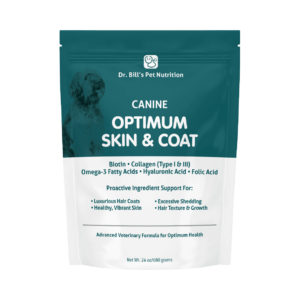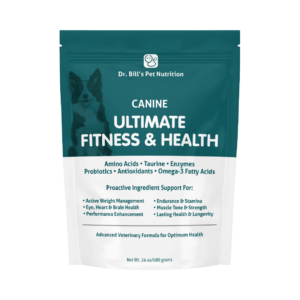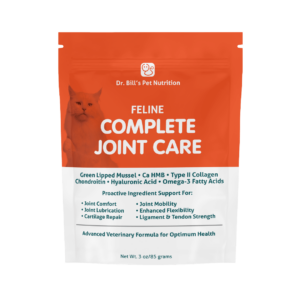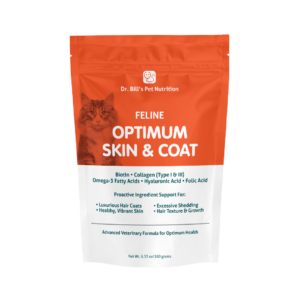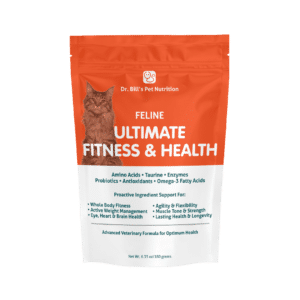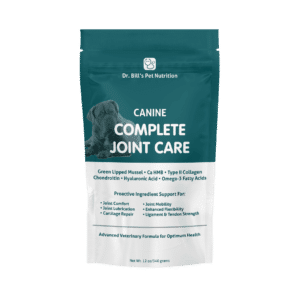
Collagen
Collagen, a vital part of cartilage, is a primary connective tissue, which exists in various forms and performs many different functions. Acting rather like an adhesive or glue-like substance throughout the body, it helps maintain structure and in cartilage it provides a framework to hold the proteoglycans in place as well as providing elasticity and shock-absorbency. Collagen is a member of a family of naturally occurring proteins. It is one of the most plentiful proteins present in mammals and it is responsible for performing a variety of important biological functions. The word “collagen” is derived from the Greek word “Kolla,” meaning glue. Collagen is best known for the structural role it plays in the animal body.
Collagen is present in large quantities in connective tissue and provides tendons and ligaments with tensile strength and the skin with elasticity. It often works in conjunction with other important skin and hair proteins such as keratin and elastin.
Collagen makes up around 30% of the protein in the animal body. There are at least 16 different types of collagen; however, 80 to 90% are Type I, II and III.
Collagen production declines with age and is reduced by exposure to ultraviolet light and other environmental factors. Collagen supplementation is one way our animals skin and hair coats can remain healthy and looking great.
Functions of Collagen:
• Collagen type I structurally supports the skin, tendon, ligaments, bone, teeth, and forms a sturdy matrix in between organs
• Type II collagen is found in all joint cartilage and the fluid of the eye
• Collagen type III is a primary constituent of muscle, blood vessels, and skin
• Collagen Types I and III give the skin its strength and structure, and also plays a role in the replacement of dead skin cells
• Type I collagen fibrils are stronger than steel (gram for gram)
• The chemical structures of collagen types I and III are responsible for the properties of the tissues formed out of them
Type II Collagen
Type II collagen is a major component of hyaline joint cartilage and is a direct source of collagen type II cells needed for the replacement of worn or damaged articular cartilage. Preventive supplementation is especially productive in those breeds that are more prone to injury and joint disease throughout their lives.
• Type II collagen is found in all cartilage and the fluid of the eye
• Type II collagen is a natural source of chondroitin sulfate and hyaluronic acid, essential components in maintaining optimum joint health
The instructions for making any protein are contained in the DNA. The DNA resides in the nucleus of the cell far from the organelles that produce proteins. The cell transcribes the instructions from DNA onto a related molecule called RNA. Transcribed RNA with the instructions for creating collagen leaves the nucleus and goes to the ribosomes where proteins are assembled.
Ribosomes are responsible for producing proteins by translating the instructions on RNA into a chain of amino acids called a polypeptide. Some ribosomes are spread throughout the cell. Other ribosomes are attached to a network of tubes called the endoplasmic reticulum. Collagen production occurs at the ribosomes attached to the endoplasmic reticulum.
The polypeptides that will become collagen are made mostly of glycine, proline, and hydroxyproline. The chemical structures of these three amino acids give the collagen polypeptides their unique properties. Bonds form between the amino acids on adjacent polypeptides to pull them together in a triple helix. This triple helix has impressive strength and resiliency.
The triple helix of polypeptides undergoes some more processing and is then secreted from the cell. The final steps in collagen production must happen outside the cell so that completed collagen does not form a matrix inside the cell thereby clogging it. During or following secretion, the ends of the triple helix are cut off. This allows the small strands to attach to each other forming a strong, elastic matrix.
NEW
Subscribe & Save
Save 10% On Auto Deliveries
Shop Now
